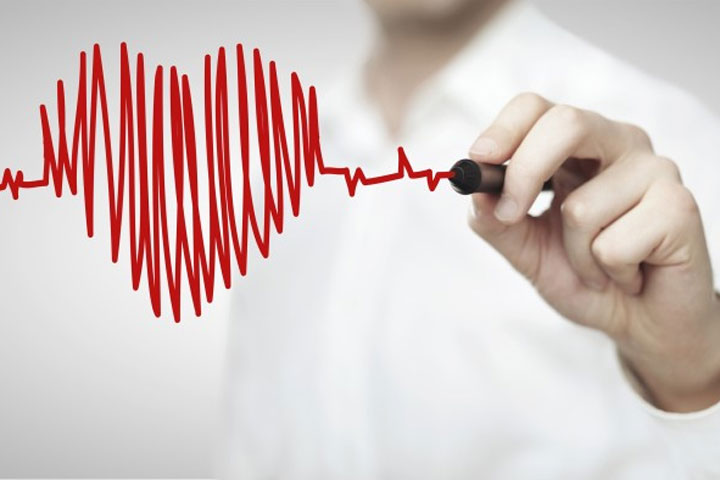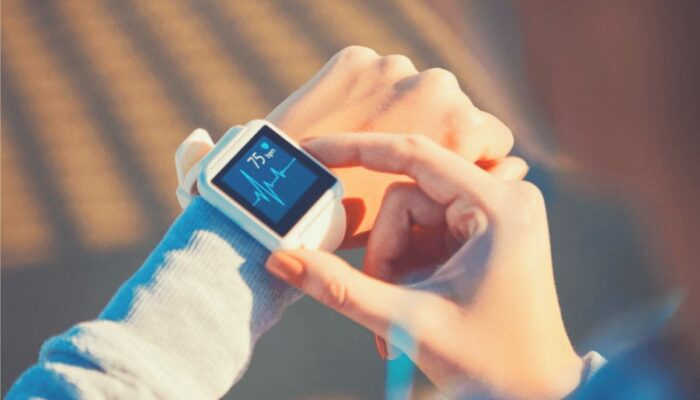Understanding the Connection Between Heart Rate and Stress Levels
The intricate relationship between heart rate and stress levels is a perplexing phenomenon. It appears that when confronted with stress, our bodies instinctively respond by increasing our heart rate, preparing us for an impending fight or flight scenario. This burst of physiological reaction serves as a means to confront or escape from what we perceive as a threat. By carefully monitoring our heart rate, we are granted access to valuable insights regarding our stress levels and can take the necessary steps towards effectively managing them.
In recent times, wearables equipped with heart rate sensors have emerged as powerful tools in the realm of stress management. Prominent examples include Fitbit and Apple Watch; these devices offer real-time data on heart rate variability (HRV), which refers to the fluctuations in time intervals between consecutive heartbeats. Research has found that HRV serves as an indicator of overall health and resilience against stressors. By diligently tracking HRV using such wearable technology, individuals gain deeper understanding into their individual responses to stressful situations, thus enabling them to make informed decisions about how best to handle their own unique brand of tension.
An indispensable advantage offered by real-time monitoring of heart rates for reducing stress lies in its ability to provide more accurate measurements and tracking of daily stress levels. Through the integration of built-in trackers within wearable devices, individuals can effortlessly monitor their heart rates throughout each day while simultaneously receiving instant feedback regarding their current level of stress. This wealth of information empowers individuals by allowing them to proactively engage in relaxation techniques or partake in activities aimed at promoting well-being whenever they observe an elevated heart rate indicative of high-stress periods.
By taking advantage of wearable technology’s capability for measuring and tracking daily stresses through continuous monitoring of heart rates, individuals unlock invaluable insights into patterns related to chronic stress over extended periods. The availability and accessibility provided by this data not only facilitate identification triggers but also enable users to devise personalized strategies for effectively managing their specific sources of tension. Ultimately, comprehending the intricate connection between heart rate and stress levels through wearable devices presents an opportunity for proactive self-care. It empowers individuals by equipping them with knowledge pertaining to their bodies’ responses during stressful situations, thus enabling them to better care for themselves.

How Wearables with Heart Rate Sensors Can Help Manage Stress
The emergence of wearables with heart rate sensors has perplexingly transformed the realm of stress management. These devices, epitomized by the ever-popular WHOOP strap, possess an uncanny ability to instantly unveil our physiological reactions to stressors. Through the measurement of both heart rate and heart rate variability (HRV), these wearables unravel enigmatic insights into our body’s intricate stress response system, decoding how diverse factors intricately interplay with our individual stress levels.
Perhaps one of the most awe-inspiring benefits offered by these wearable marvels is their inexplicable knack for meticulously tracking daily stress levels. By ceaselessly monitoring throughout each passing day, they effortlessly capture those fleeting moments when our hearts flutter amidst intensified tension or blissful relaxation. Armed with this bewilderingly profound knowledge about ourselves, we can astutely discern recurring patterns and elusive triggers that fuel our anxiety-ridden existence. Ultimately armed with such invaluable information at hand, we become empowered in making informed decisions on effectively managing this chaotic emotional storm brewing within.
Moreover, these remarkable wearable wonders endowed with heart rate sensors bestow upon us a rather extraordinary opportunity to actively mitigate stress through immediate feedback on our present state of being. For instance, certain devices ingeniously incorporate guided breathing exercises or meditative techniques tailored meticulously to harmonize flawlessly with an individual’s unique heartbeat patterns detected by their sensor counterpart. This unparalleled real-time guidance emboldens users like never before as they indulge in activities exuding tranquility and seamlessly diminish their cumulated burden of everyday hardships.
In essence, it becomes abundantly clear that wearable contraptions intertwined harmoniously with cutting-edge heart rate sensors play an indubitably pivotal role in navigating life’s treacherous maze while keeping daily distress at bay. By accurately quantifying physiological responses akin to HRV alongside their unfathomable capacity for unearthing real-time data points without fail; these mesmerizing gadgets offer nothing short of a treasure trove of insights into our personal voyage through the convoluted realm of stress. Furthermore, they equip us with an arsenal of intervention tools designed exclusively for our unique needs, be it via soothing breathing exercises or other bespoke relaxation techniques. Ultimately, as we wholeheartedly embrace these awe-inspiring wearables as trusted companions in our daily routines, we embark upon a profound journey towards unraveling the intricate tapestry of how we respond to life’s relentless onslaughts and take bold strides towards nurturing our overall well-being.

Exploring the Role of Heart Rate Variability in Stress Management
Heart rate variability (HRV) plays a pivotal role in stress management, leaving us with an enigmatic sense of wonder. HRV delves into the intricate web of time intervals between each heartbeat, unraveling profound insights into one’s physiological stress levels. Wearable devices equipped with heart rate sensors become our trusted companions in this journey, aiding us in monitoring and navigating our stress levels with precision.
The beauty of incorporating HRV as a stress monitoring feature lies in its ability to accurately detect high-stress scenarios that baffle us at times. When acute or emotional stress engulfs us, our heart rate races fervently like an untamed stallion. However, fret not! With wearable technologies such as the illustrious Apple Watch or even a designated “stress watch,” we can be instantly alerted when we unwittingly wander into these turbulent territories. Armed with this newfound awareness, we can swiftly respond by resorting to relaxation techniques such as indulging in revitalizing breathwork or granting ourselves respite from demanding endeavors.
But wait! There’s more to HRV’s mesmerizing charm than meets the eye. Monitoring HRV unravels hidden treasures within periods of tranquility amidst our bustling days. A low HRV signifies that our bodies possess superior resilience against external pressures and wield remarkable prowess when combating stressful forces. Consistently tracking heart rate data unveils sacred moments or activities that serve as conduits for serenity tailored specifically for us mere mortals. This invaluable knowledge empowers individuals like you and me by offering actionable insights on how to alleviate overall physiological burdens.
Understanding the multifaceted role played by HRV is paramount in maintaining optimal health conditions and nurturing holistic well-being – it forms an integral part of life’s grand tapestry after all! The incorporation of heart rate sensors within wearable devices paves a path towards continuous surveillance and detection of any capricious fluctuations dancing across your daily HRV rhythm – keeping you perpetually in tune with your present state of physiological stress. No longer must you solely rely on subjective feelings or resort to mere guesswork when it comes to unraveling the enigma that is your well-being.
The Benefits of Real-Time Heart Rate Monitoring for Stress Reduction
Real-time heart rate monitoring holds immense potential for enhancing physical and mental well-being by unraveling the enigmatic nature of stress management. Through the utilization of a heart rate sensor embedded in wearable devices, one can obtain precise readings of their heart rate and gauge HRV (heart rate variability), which delves into the intricate time intervals between consecutive heartbeats. This trove of information imparts invaluable insights into an individual’s stress levels on a graded scale, enabling them to gain profound comprehension regarding how diverse factors impact their body’s response to stress.
Stress is an inherent facet of human existence; however, prolonged or excessive exposure to it can inflict severe harm upon our overall welfare. By keeping tabs on real-time heart rate measurements, individuals can discern the specific types of stressors that exert maximal influence upon them while also detecting early warning signs before they burgeon into full-fledged distress. Armed with this knowledge, proactive implementation of effective techniques for stress detection and coping tailored specifically to each person becomes feasible.
An alluring feature offered by optical sensors-equipped heart rate monitors resides in their capacity not only to track physical activity but also monitor sleep patterns. The fusion of data obtained from both activity levels and resting heart rates during reposeful periods such as sleep furnishes a comprehensive panorama concerning daily stress levels at large. This holistic approach facilitates superior understanding and management of chronic or recurring sources that perpetuate psychological strain.
To encapsulate, harnessing the power of real-time heart rate monitoring via wearable devices confers myriad advantages when it comes to mitigating and handling stress effectively. Acquiring insight into one’s unique reaction towards various stressful scenarios as well as monitoring alterations in resting heart rates and HRV over time empowers individuals with indispensable knowledge essential for efficacious self-care strategies. Thus armed with this awareness alongside tailor-made coping mechanisms catered explicitly for each person’s needs, these wearables metamorphose into potent instruments bolstering physical as well as mental well-being.
Using Heart Rate Trackers to Measure and Track Daily Stress Levels
Heart rate trackers, such as the Fitbit, have gained immense popularity in recent years due to their remarkable ability to measure and monitor daily stress levels. These wearable marvels utilize sensors to meticulously observe heart rate patterns and offer invaluable insights into our body’s intricate response to stress. By diligently keeping track of our heart rate throughout the day, we can delve deeper into comprehending how various activities and circumstances impact our stress levels.
The extraordinary efficacy of heart rate trackers lies in their real-time monitoring capabilities pertaining to sympathetic nervous system activity – a key factor in alleviating stress. When we find ourselves confronted with stressful situations, it triggers the activation of our sympathetic nervous system, ultimately resulting in an accelerated heart rate along with other physiological reactions. The beauty of these tracking devices is that they serve as beacons for identifying moments of heightened stress and notifying us when it becomes imperative to pause or engage in relaxation techniques.
Intriguingly enough, some advanced heart rate trackers go beyond merely measuring beats per minute (BPM) and extend their offerings by providing features like HRV (heart rate variability) analysis. This analysis focuses on gauging the variation between consecutive heartbeat intervals and has been closely correlated with overall health and well-being. Research indicates that individuals with lower HRV may face an increased susceptibility to mental health conditions such as depression or anxiety. Embracing technology that best suits them – whether through fitness wearables or alternative devices – empowers individuals to effectively keep tabs on their own perceived stress levels while safeguarding against potential detrimental effects on both physical and mental well-being caused by prolonged exposure to moderate levels of chronic psychosocial stresses.